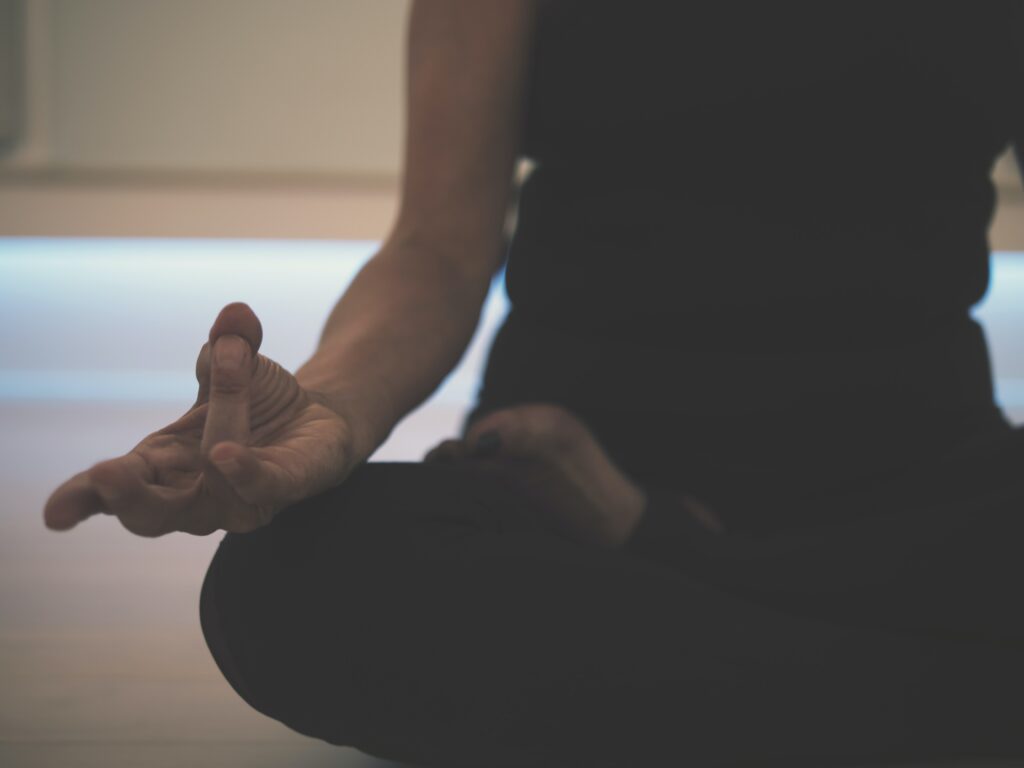Are you a student trying to balance the demands of your coursework and extracurricular activities? Or perhaps you’re a working professional juggling multiple deadlines and responsibilities? No matter which category you fall into, guided meditation might be the secret tool you’ve been searching for. In this article, we will explore the specific benefits of guided meditation for both students and professionals, and how incorporating this practice into your daily routine can help improve your focus, reduce stress, and enhance overall well-being. So, sit back, relax, and discover the transformative power of guided meditation in your life.
Improved Focus and Concentration
Enhanced ability to stay engaged
One of the key benefits of guided meditation for students and professionals is the improved ability to stay engaged. In today’s fast-paced world, it can be challenging to stay focused on the task at hand. However, through regular practice of guided meditation, you can train your mind to maintain concentration and avoid distractions. Guided meditation helps you develop the skill of redirecting your attention back to the present moment, allowing you to engage fully in your studies or work.
Increased mental clarity and alertness
Guided meditation also enhances mental clarity and alertness, which is crucial for both students and professionals. When you meditate, you enter a state of deep relaxation and calmness. This enables your mind to let go of racing thoughts and mental clutter, allowing for greater clarity and focus. As a result, you can approach your tasks with a heightened sense of alertness, making it easier to comprehend and process information effectively.
Improved memory and retention
Another significant benefit of guided meditation is improved memory and retention. Research has shown that meditation positively impacts the hippocampus, the area of the brain responsible for memory formation and recall. By regularly practicing guided meditation, you can enhance your ability to store and retrieve information, making studying and learning more effective. Additionally, guided meditation helps reduce stress, which can impair memory and cognitive function, further supporting your memory improvement goals.
Stress Reduction and Relaxation
Alleviation of stress and anxiety
In today’s demanding academic and professional environments, stress and anxiety are common experiences. Guided meditation offers a powerful tool for alleviating these negative emotions. By engaging in peaceful and focused meditation sessions, you can activate the body’s relaxation response and significantly reduce stress levels. The calming techniques used in guided meditation help regulate the body’s stress hormones, promoting a sense of tranquility and inner peace. As a result, you can better manage the pressures and challenges that come your way, leading to a more relaxed and balanced state of being.
Decreased feelings of overwhelm
Feeling overwhelmed is a common occurrence for both students and professionals. The constant juggling of multiple tasks and responsibilities can easily lead to a sense of being swamped. Guided meditation provides a valuable tool for managing these overwhelming feelings. By practicing guided meditation, you can step away from the chaos of the external world and find inner calm. This allows you to gain perspective and approach your tasks with a more structured and manageable mindset. As a result, you’ll be better equipped to handle the demands of your studies or work without being consumed by feelings of overwhelm.
Improved overall well-being
Not only does guided meditation reduce stress and overwhelm, but it also improves overall well-being. Regular meditation practice has been linked to increased happiness, contentment, and overall life satisfaction. By taking the time to engage in guided meditation, you are prioritizing self-care and giving yourself the opportunity for inner growth and rejuvenation. The deep relaxation and introspection involved in guided meditation allows you to cultivate a sense of well-being that transcends beyond the meditation session, positively impacting other aspects of your life.

This image is property of images.unsplash.com.
Emotional Balance and Resilience
Better management of emotions
Guided meditation plays a crucial role in helping students and professionals better manage their emotions. Through meditation, you learn to observe your thoughts and emotions without judgment, creating a space for emotional self-awareness. This awareness allows you to identify and understand your emotions more fully, contributing to a healthier and more balanced emotional state. By regularly practicing guided meditation, you can develop the skills to regulate and modulate your emotional responses, leading to greater emotional balance and stability.
Enhanced self-awareness
Self-awareness is a fundamental aspect of personal growth and success. By practicing guided meditation, you can cultivate a heightened sense of self-awareness. During meditation, you are encouraged to turn your attention inward, focusing on your thoughts, emotions, and physical sensations. This introspective journey helps you develop a deeper understanding of yourself, your needs, and your triggers. With this enhanced self-awareness, you can make more conscious choices in your studies or work, aligning your actions with your values and goals.
Improved resilience to challenges
The ability to bounce back from setbacks and face challenges with resilience is a valuable trait for students and professionals alike. Guided meditation supports the development of resilience by promoting a mindset of acceptance and non-judgment. Through regular practice, you learn to embrace the present moment and cultivate an attitude of openness and adaptability. This mindset shift allows you to navigate obstacles and difficulties with a level-headed approach, bouncing back from setbacks and moving forward with renewed determination.
Enhanced Creativity and Problem-Solving
Increased divergent thinking
Guided meditation can enhance your creativity by fostering increased divergent thinking. Divergent thinking refers to the ability to generate a multitude of ideas and solutions. During guided meditation sessions, your mind enters a relaxed state where creative ideas can freely emerge. As you focus on the present moment and release mental constraints, you tap into your imagination and connect novel ideas with existing knowledge. This enables you to think outside the box, fostering greater creativity in your studies or professional endeavors.
Improved ability to generate innovative ideas
The calm and focused state induced by guided meditation can significantly improve your ability to generate innovative ideas. By quieting the mind and reducing mental clutter, you create an environment conducive to creative thinking. Guided meditation helps you access different parts of your brain and encourages the exploration of unconventional ideas and solutions. As a result, you can approach your tasks with fresh perspectives, leading to increased innovation and problem-solving in your academic or professional pursuits.
Enhanced problem-solving skills
Effective problem-solving skills are essential for students and professionals to overcome challenges and achieve success. Guided meditation can improve these skills by enhancing your cognitive abilities and mental clarity. Through regular meditation practice, you cultivate a focused and calm state of mind that allows you to approach problems with greater clarity and insight. The ability to observe your thoughts and emotions without judgment developed during meditation also helps you analyze problems objectively and develop strategic solutions. With enhanced problem-solving skills, you can tackle complex tasks or projects more efficiently and with greater success.

This image is property of images.unsplash.com.
Improved Sleep Quality
Faster time to fall asleep
Guided meditation can significantly improve sleep quality by reducing the time it takes to fall asleep. Many individuals, especially students and professionals, struggle with racing thoughts and difficulty winding down at the end of the day. By incorporating guided meditation before bedtime, you can create a pre-sleep routine that prepares your mind and body for restful sleep. The relaxation and calming techniques employed in guided meditation help quiet the mind, promoting a smooth transition into a deep and restorative sleep state.
Reduced sleep disturbances
Sleep disturbances, such as insomnia or frequent waking during the night, can negatively impact your overall well-being and functioning. Guided meditation offers a natural and effective way to reduce these disturbances. By engaging in guided meditation, you create a sense of inner peace and relaxation that extends into your sleep. The practice helps regulate the body’s sleep-wake cycle, promoting a more consistent and uninterrupted sleep pattern. With reduced sleep disturbances, you can wake up feeling refreshed and rejuvenated, ready to take on the challenges of the day.
Enhanced overall sleep quality
In addition to falling asleep faster and experiencing fewer disturbances, guided meditation can enhance the overall quality of your sleep. Regular meditation practice has been shown to increase the amount of time spent in deep sleep, the most restorative stage of the sleep cycle. Deep sleep is essential for memory consolidation, learning, and emotional regulation. By incorporating guided meditation into your routine, you can optimize the quality of your sleep, supporting your physical and mental well-being.
Increased Productivity
Improved time management
Guided meditation can significantly improve time management skills, enabling students and professionals to make the most of their available time. Through meditation, you cultivate a present-focused mindset that allows you to prioritize tasks and manage your time more effectively. The enhanced ability to concentrate gained through guided meditation enables you to maintain focus on your current task, reducing the inclination to procrastinate or get distracted. This increased discipline and time awareness help you allocate your time resources efficiently, ensuring important tasks are completed within deadlines.
Enhanced ability to prioritize tasks
The ability to prioritize tasks is essential for effective productivity. Guided meditation supports the development of this skill by fostering mental clarity and perspective. By regularly practicing guided meditation, you can cultivate a calm and centered mindset that helps you identify and prioritize tasks based on their importance and urgency. The introspective nature of meditation allows you to assess your workflow and make conscious choices regarding task allocation, working towards your goals with efficiency and focus.
Increased efficiency and effectiveness
By incorporating guided meditation into your routine, you can significantly increase your overall efficiency and effectiveness. Meditation promotes a state of mind that is conducive to productivity by minimizing distractions and mentally preparing you for focused work. The clarity and calmness cultivated through guided meditation help you approach tasks with a clear and organized mindset, enabling you to work more efficiently and make progress in your studies or professional endeavors. As a result, you can achieve more in less time, leading to increased productivity and success.

This image is property of images.unsplash.com.
Improved Self-Confidence and Self-Esteem
Increased self-acceptance and self-worth
Guided meditation can boost self-confidence and self-esteem by fostering increased self-acceptance and self-worth. Through meditation, you learn to observe your thoughts and emotions without judgment or self-criticism. This non-judgmental awareness allows you to develop a deeper sense of self-acceptance, embracing both your strengths and areas for growth. As you cultivate self-compassion and acceptance, your self-worth increases, leading to enhanced self-confidence in your abilities as a student or professional.
Enhanced belief in one’s abilities
Believing in your abilities is crucial for achieving success. Guided meditation supports the development of a positive mindset and belief in oneself. By regularly engaging in meditation sessions, you can cultivate a state of mind that promotes self-belief and confidence. The relaxation and introspection involved in guided meditation enable you to tap into your inner strengths and recognize your past achievements. This recognition builds a solid foundation of belief in your abilities, empowering you to tackle challenges and pursue your goals with conviction.
Improved assertiveness
Guided meditation can also improve assertiveness, a valuable skill for students and professionals. By cultivating self-awareness and inner strength through meditation, you can develop the confidence to express yourself and assert your needs and boundaries. The practice of guided meditation teaches you to connect with your authentic self and trust your intuition. As a result, you can communicate effectively, advocate for yourself, and engage in healthy assertiveness, fostering positive relationships and maximizing your potential.
Better Relationships and Interpersonal Skills
Enhanced empathy and understanding
Guided meditation can significantly enhance empathy and understanding, fostering better relationships with others. By regularly practicing meditation, you develop a mindset of compassion and kindness towards yourself and others. The introspective nature of meditation allows you to cultivate empathy by understanding and connecting with the emotions of others. With increased empathy, you can develop deeper and more meaningful relationships, fostering a sense of connection and understanding both in your personal and professional interactions.
Improved communication and active listening
Communication is a vital aspect of successful relationships, both personal and professional. Guided meditation can improve your communication skills by enhancing active listening. During meditation practice, you learn to quiet the mind and fully engage in the present moment. This skill translates into your interactions with others, allowing you to be fully present and actively listen to what others have to say. With improved listening skills, you can foster deeper understanding, resolve conflicts more effectively, and build stronger connections with those around you.
Increased conflict resolution abilities
Conflict is an inevitable part of any relationship, and the ability to resolve conflicts in a healthy and constructive manner is essential. Guided meditation can enhance your conflict resolution abilities by developing mindfulness and emotional regulation. Regular meditation practice helps you develop the skills to observe your thoughts and emotions without reacting impulsively. This self-control allows you to approach conflicts with a calm and centered mindset, facilitating open communication and the search for mutually beneficial solutions. With increased conflict resolution abilities, you can navigate disagreements and challenges in a way that strengthens relationships rather than causing further division.
Reduced Burnout and Compassion Fatigue
Lowered risk of burnout and exhaustion
Burnout and exhaustion are prevalent issues among students and professionals, given the demanding nature of their work and studies. Guided meditation offers a powerful tool in reducing the risk of burnout and exhaustion. By engaging in regular meditation sessions, you create space for rest and rejuvenation. Meditation helps regulate stress hormones, lowering the risk of chronic stress and burnout. The relaxation and self-care involved in guided meditation provide a vital buffer against the pressures and demands of daily life, promoting sustainable well-being and preventing burnout.
Increased compassion and empathy
Compassion and empathy are essential qualities for individuals in the helping professions or those who frequently interact with others. Guided meditation plays a significant role in nurturing these qualities. As you engage in meditation and cultivate mindfulness, you develop a heightened sense of compassion and empathy towards yourself and others. The practice encourages you to become more attuned to the needs and struggles of those around you, fostering authentic connections and promoting emotional well-being.
Enhanced ability to care for others
Guided meditation can enhance your ability to care for others, preventing compassion fatigue. Compassion fatigue, also known as secondary traumatic stress, is the exhaustion that results from caring for others. By engaging in regular guided meditation, you replenish your own emotional and physical reserves, allowing you to effectively care for those in need without depleting your own resources. The self-care aspect of meditation supports your well-being and enhances your capacity to be a compassionate and supportive presence in your academic or professional roles.
Improved Physical Health
Lowered blood pressure
High blood pressure is a common health issue associated with stress and the demands of academic or professional life. Guided meditation can significantly lower blood pressure levels. By engaging in meditation, you activate the body’s relaxation response, reducing stress hormones and promoting a more balanced state. This physiological response helps regulate blood pressure, leading to an overall improvement in cardiovascular health. Incorporating guided meditation into your routine can help support healthy blood pressure levels and contribute to your long-term physical well-being.
Reduced stress-related physical symptoms
Stress often manifests in various physical symptoms, such as headaches, muscle tension, and digestive issues. Guided meditation offers a natural and effective way to reduce these stress-related physical symptoms. By calming the mind and promoting relaxation, guided meditation soothes the body’s stress response. The release of tension in the muscles and the reduction in stress hormones alleviate physical discomfort and promote a sense of ease. With reduced stress-related physical symptoms, you can experience better overall physical health and well-being.
Enhanced immune system function
The immune system plays a vital role in protecting the body from illnesses and infections. Guided meditation can enhance immune system function, strengthening your body’s natural defense mechanisms. Regular meditation practice has been shown to reduce markers of inflammation and improve immune response. By engaging in guided meditation, you create a state of relaxation and tranquility that supports immune system function. The enhanced self-care involved in meditation also promotes overall physical health, contributing to a stronger and more resilient immune system.
In conclusion, guided meditation offers numerous specific benefits for students and professionals. From improved focus and concentration to enhanced creativity and problem-solving skills, guided meditation empowers individuals to optimize their emotional well-being, productivity, and overall physical health. By incorporating regular meditation practice into their lives, students and professionals can unlock their full potential, nurture their relationships, and navigate the challenges of their academic and professional journeys with resilience and compassion.
Hi, I’m the Editor of Daily Guided Meditation. Meditation is not just a practice for me, but a way of life. I believe in the power of mindfulness to bring peace and balance into our busy lives. That’s why I created this website, where you can find daily guided meditations to help you on your journey of self-discovery and inner peace. Join our community and experience the transformative benefits of mindfulness through soothing meditations, relaxation techniques, and valuable resources. Prioritize self-care and start your day with intention by exploring our website today. Together, let’s find serenity amidst the chaos.


